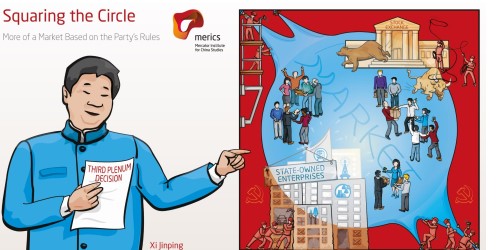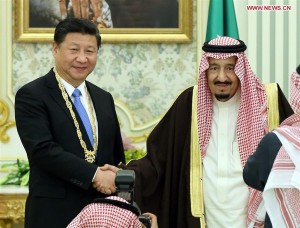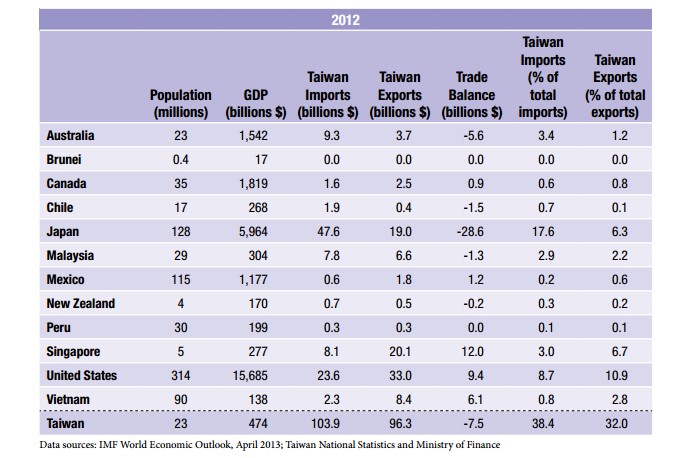Policy Momentum in China: New Year Perspectives?

Denis Bright invites consideration of China’s pragmatic quest for policy momentum in both domestic reform and foreign policy. China maybe one country that is pragmatically seeking alternatives to the template model of politics based on a strengthening of corporate influence and deference to the military industrial complexes.
As financial volatility engulfs the entire global economy, China is still in a comparatively good position in both economic development and leadership in international relations. What policy agendas are viable as the Year of the Monkey commences?
1 China in Global Volatility
New Year in China brings economic growth prospects of around 7% in domestic and international markets which are predominantly capitalist in orientation. Both the US dollar and the Chinese Yuan are overvalued and downward adjustments must be anticipated in 2016. Within China itself (and ironically in the US as well), there are profound discrepancies in living standards.
New policy paradigms are needed in urban, regional and environmental planning in both China and the US. The mutual problems should invite symbiotic responses between the economic superpowers.
While China has run down almost a third of its massive foreign currency reserves in the past year to protect the Yuan, US financial institutions are in need of greater equity for their own sustainability.
The dispersed $1 trillion in Chinese foreign reserves would go a long way to expand peaceful development programmes in both rich and poor countries alike.
The worst financial corrections in a generation have given China new opportunities to expand domestic consumption and to diversify the direction of output away from traditional industrial and service sectors.

Chinese President Xi Jinping acclaimed by Saudi King Saud
Modest success has been achieved in this direction with the Chinese-based Asian Infrastructure Bank (AIIB) which commenced operations on 16 January 2016. It has thirty foundation members including Australia and the UK. Most countries along the Silk Road to Europe are members including Iran, Turkey, Kuwait, Israel and Saudi Arabia.
China’s overseas financial sector activity is most welcomed in countries like Saudi Arabia which have been hit by deflationary pressures and low commodity prices. President Xi Jinping’s visit to Egypt, Saudi Arabia and Iran in late 2015 came at a very strategic time.
Trade is making friends of potential adversaries and it is significant that Israel has joined the AIIB and welcomed Chinese technology in its public transport networks.
All of the strategically based countries at the end of the Silk Road can only benefit from greater involvement in the AIIB. Most, but not all, the countries in Southern Europe, the Middle East and North Africa are foundation members already.
2 China as part of the solution in international relations
During times of global financial challenge, China has emerged as a stabilizing influence in international relations. The main challenge ahead is the threat of a return to a conservative populist administration after the US Presidential elections.
Without this negative circuit-breaker to more peaceful international relations, it is likely that China will be called upon to manage North Korean assertiveness and build bridges with Russia to ease the Syrian crisis through intervention by the Security Council.
China seems to have weathered the potential storms posed by both the election of Prime Minister Wen in Taiwan and the challenge posed by the Trans Pacific Partnership (TPP) Agreement which currently excludes both Taiwan and China.
China has become so pragmatic in its economic reform programme that it could expect a unity ticket with Taiwan on membership of the TPP.

The potential rise of the TPP within the global economy
3 Australia’s window of opportunity
Australia after the accession of Prime Minister Turnbull has indeed proved more Whitlamesque than expected in his government’s engagement with China to assist dispute resolution in East Asia and specifically in the easing of tensions on the Korean Peninsula.
It is a credit to the growing profile of Chinese diplomacy that both Korean states were separately represented at China’s military parade on 3 September 2015 to mark the 70th anniversary of victory against Japan. To have centre-right South Korea President Park Guen-hye on the scene was quite amazing.
Shannon Tiezzi’s reporting of the seating order at this event for the Diplomat is also significant:
On September 3, while Chinese troops and military equipment paraded through Tiananmen Square and Xi Jinping delivered a ringing rebuke of Japanese military aggression, South Korean President Park Geun-hye watched from a position of honor on Tiananmen Gate. During the parade, Park sat to the left of Xi’s wife, Peng Liyuan, who was herself sitting to the left of Xi. Russian President Vladimir Putin was seated on Xi’s right.
If South Korea under a centre-right government can make such overtures on the world stage, so can Australia under the federal LNP.
To its credit, Australia has significant equity in the Chinese-based AIIB and at levels comparable to both South Korea and Indonesia or 3-4% of total foundation shares.
This is a far cry from the old days of provocatively choosing best friends in Asia as promoted by Prime Minister Abbott.
With the $1 trillion reduction in China’s foreign currency reserves in the past year, Australia has missed out on opportunities to attract some of this equity into our own sovereign wealth funds like the existing Future Fund of Australia, or Bill Shorten’s proposed Infrastructure Australia Fund.
China’s diplomatic initiatives showed no limits as the New Year approached.
The territorial disputes shared by both China and Taiwan over claims to islands in the South China Sea were also hosed down at the APEC Economic Leaders Meetings in Manila in late 2015.
Despite the gloom promoted on eyewitness news programmes by repetitive coverage of negatives, the underlying foundations of New Year in 2016 are quite exciting. Cheers to the Year of the Monkey which might only be upset by the election of a maverick populist president in the US.
 Denis Bright (pictured) is a registered teacher and a member of the Media, Entertainment and Arts Alliance (MEAA). Denis has recent postgraduate qualifications in journalism, public policy and international relations. He is interested in developing progressive public policies that are quite achievable within contemporary globalization
Denis Bright (pictured) is a registered teacher and a member of the Media, Entertainment and Arts Alliance (MEAA). Denis has recent postgraduate qualifications in journalism, public policy and international relations. He is interested in developing progressive public policies that are quite achievable within contemporary globalization









12 comments
Login here Register here-
mark delmege -
Diplomacy for Change -
JeffJL -
mark delmege -
Catherine -
More Mainstream Agenda -
adriko555 -
Patricia Ryan -
China's Long March -
Theresa -
New Year Prospects -
More Republican Independence?
Return to home pageDenis I think you have missed some important point. There is nothing ironical about disparities in the USA – they have been there since the start.
‘The worst financial corrections in a generation have given China new opportunities to expand domestic consumption and to diversify the direction of output away from traditional industrial and service sectors’. I’m not sure these are even linked. China made a deliberate decision to promote domestic consumption for its own development model reasons.
China supports Russian actions in Syria and will be more than happy to see the western backed fanatics/rebels killed or removed from the battlefield. And has promised 30 billion towards the rebuilding of Syria. It is opposed to the (Western) use of terrorism as an instrument of policy.
China like Korea (North and South) suffered greatly from Japanese invasions and in many ways is a natural ally and its no surprise that the two (three) share certain points of view.
Pay no attention to the blather over the recent satellite launch by North Korea – it is in fact a great achievement to join 9 others as a country with a satellite launch capability. Over time we will see many more of these and they will serve the North Korean economy and society well with a range of space based services. If Turnbull was serious about normalising and easing tensions on the Korean peninsular it would allow North Korea to open an Embassy here and reciprocate– but because of US pressure I doubt that it will.
Australia is firmly in the US/NATO/Israel wedge and nothing is about to change (unfortunately). Russia and China aren’t and the two blocks because of US manipulations are in mortal combat – in some places hot (Ukraine and Syria) and other places simmering. Its a dangerous game and the ante has been upped at every opportunity during the Obama regime. Obama has followed the neocon agenda on virtually all fronts but I do agree the election of Clinton would be a turn for the worse.
Australia should not follow the neocon agenda: its has higher capacities and should follow the independent diplomatic initiatives taken by John Curtin and Gough Whitlam; Nothing is stopping Australia but sheer policy conventions. China has become an example in pragmatic flexibility by engaging with countries like Iran and Saudi Arabia. It does the same with North and South Korea.
Sorry Mark.
‘China supports Russian actions in Syria” – “It {China} is opposed to the (Western) use of terrorism as an instrument of policy.” While the West does not cover its self in glory in its actions in Syria at least they are more honest than the Russians. Remember the Russians were going in to Syria to attack ISIS. Too bad most of the bombs they have dropped have landed on ISIS enemies. At least the Western powers do have rules of conflict which means that most of the time the planes land with their ordinance still attached as releasing it would cause too many civilian casualties. The Russians do not appear to have that restriction given the numbers of civilians they have killed.
If you consider the West’s actions as terrorism then you should recognise Russia’s actions as significantly worse.
It is now reported that North Korea has restarted it’s plutonium reactor in direct contravention of the agreements they signed in the past. This will enable them to produce enough plutonium to make nuclear weapons in a few months. It was a satellite launch yeah.
You are as deluded as those who were arguing that the USSR was utopia in the 50s, 60s and 70s.
The Russians are in Syria to support the legitimate Government. It is attacking terrorist groups – IS is just one of those. Al Qaeda is another – there are many. It will systematically assist ground operations as the need arises. As is now clear to the world – and hopefully even to you – NATO country Turkey has been a major supply route for various terrorist groups and they are been choked off.
You obviously have no historical understanding of what has been happening in Syria and take your information from MSM or western biased sources. You really should read wider if you want to understand what is happening in the world.
Yes I did hear of an American assessment that North Korea restarted a plutonium reactor. Lets see if it is just another propaganda rumour or if it is based on fact. You should note I made no moral judgement on North Korea – just that it had launched a satellite – it is number four in a series. You can even use a NASA (I think) link and track it as it orbits the earth.
Happy New Year to all the Chinese Peacemakers
Thanks Denis for your positive New Year sentiments! Co-operation with China in defusing international tensions in Korea, the South China Sea and the Middle East is a mainstream agenda. Only one LNP Prime Minister foolishly sought to take sides with Japan over China. The The Labor Movement (political and industrial) must be courageous enough to take up the peace agenda with China using the example of Gough Whitlam’s visits in both Opposition and government. Thanks indeed to Prime Minister Turnbull for keeping out of the territorial disputes in the South China Sea which China has addressed in state visits to Vietnam and the Philippines. China is already involved in investment and development assistance on our doorstep in PNG, West Timor and Indonesia. Australia’s role in this heartland region should always be complementary and bipartisan with China, Taiwan and other countries that choose to offer assistance to our neighbours.
Very interesting approach! I would say China cares only about CHINA!! Other DEMOCRATIC countries share their values and their…battles. Denis is challenging politicians as usual
China has the capacity to tame the volatile dragon of Wall Street. Fine interpretation Denis.
Interesting interpretation Denis. I too see China moving from the Long March and the Cultural Revolution to the real corridors of power within contemporary globalization. By becoming an insider, China is changing globalization from within the system. Let’s hope that China’s potential is welcomed and appreciated. Looks like even Taiwan, South Korean and Saudi Arabia have already got the message that China is a political stabilizer and not just a mere strategic challenge. Even the LNP here seems to welcome the New China and has invested over $700 million as a foundation member of the Asian Infrastructure Fund under the new PM.
Thanks Denis. China’s diplomacy is definitely up to speed. It has a co-operative relationship with South Korea and will surely spell out the peaceful advantages of co-operation from a pragmatic Tsai Ing-wen who has just been elected Taiwan’s first female president. In the past these conservative leaders would have been a loggerheads with China. How times have changed for the better.
Time for hopeful and peaceful changes in the global financial order which brings a global recession every ten years.
Becoming a republic as favoured by our Prime Minister is not going to bring more independence if Australia simply obeys the dictates of US foreign policies and allows CIA Installation ion Australia a free hand in guiding drone attacks in the Middle East at the behest of Saudi Arabia and the Gulf States